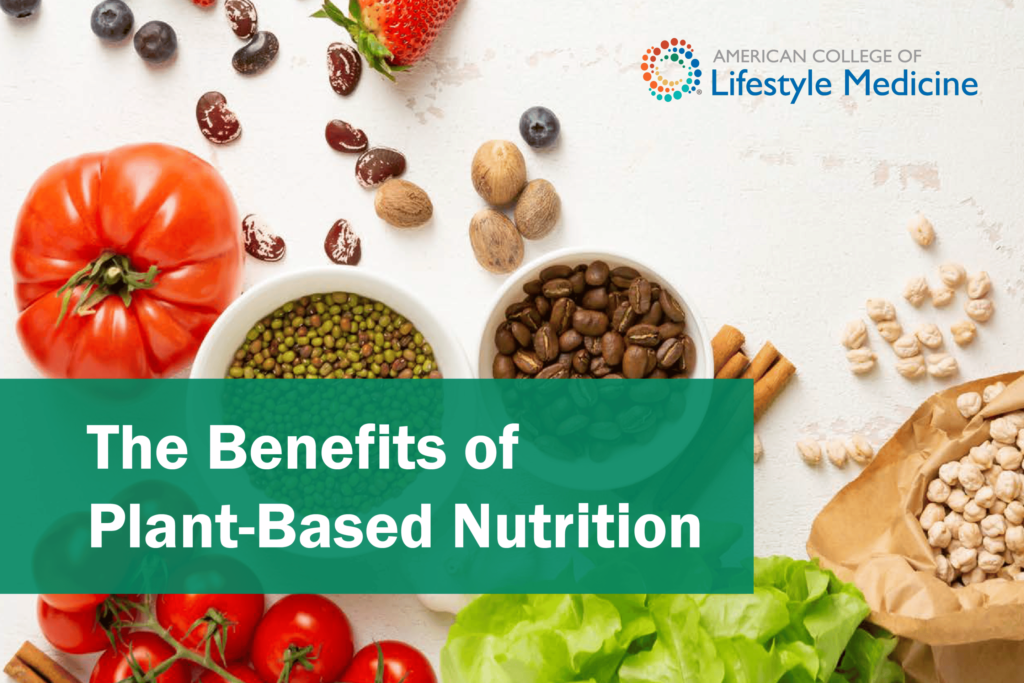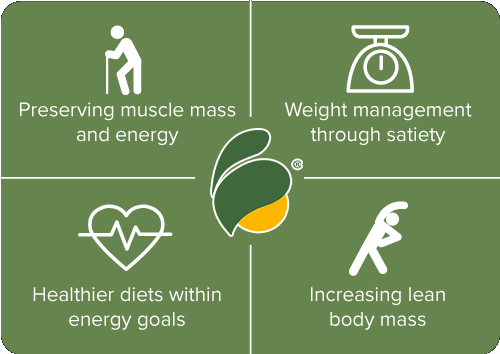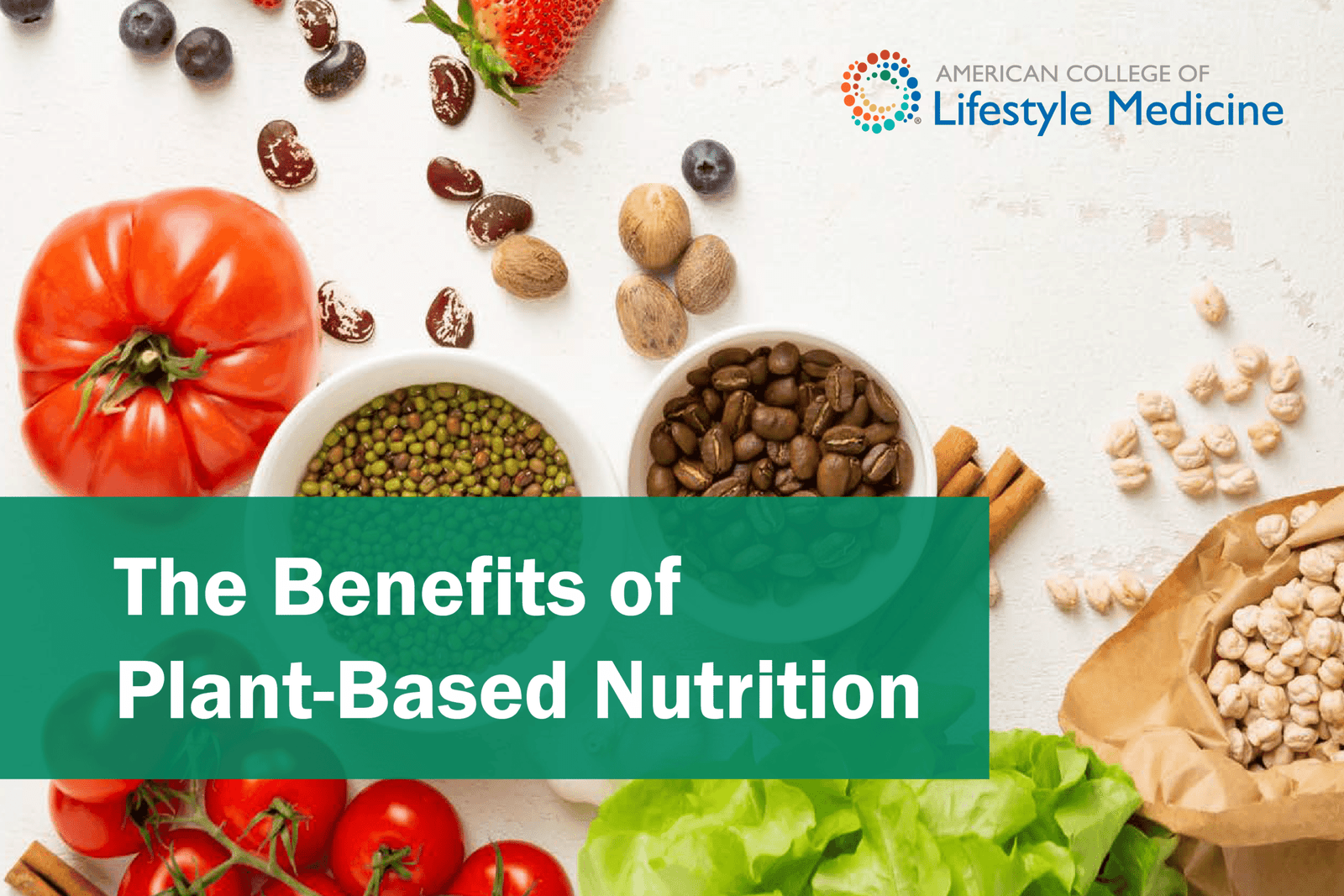If you’ve ever considered making changes to your diet, you’ve likely heard of plant-based nutrition. But what exactly is it, and what benefits does it offer? Plant-based nutrition refers to a diet that primarily consists of plant-derived foods, such as fruits, vegetables, whole grains, legumes, nuts, and seeds. This eating pattern has been gaining popularity due to its potential to improve overall health and well-being. In this article, we will explore the various benefits of adopting a plant-based diet, including its impact on weight management, heart health, and disease prevention, as well as its potential to improve energy levels and brain function. So, if you’re curious about how plant-based nutrition can positively influence your life, keep reading!
Improved Nutrient Intake
When you adopt a plant-based diet, you can greatly improve your nutrient intake. Plant-based foods are rich in essential nutrients that your body needs to function optimally. This includes vitamins, minerals, and antioxidants that play a crucial role in maintaining good health. By consuming a wide variety of plant-based foods such as fruits, vegetables, whole grains, legumes, nuts, and seeds, you can ensure that your body is getting the necessary nutrients for overall well-being.
Higher Fiber Intake
Plant-based foods are also high in dietary fiber, which offers numerous health benefits. Fiber aids in digestion, helps regulate blood sugar levels, and promotes a healthy weight. By including plenty of fruits, vegetables, whole grains, and legumes in your diet, you can increase your fiber intake and support a healthy digestive system.

This image is property of lifestylemedicine.org.
Lower in Unhealthy Fats
One of the advantages of a plant-based diet is that it tends to be lower in unhealthy fats. Animal-based foods are often high in saturated and trans fats, which can raise cholesterol levels and contribute to heart disease. On the other hand, plant-based foods are generally low in saturated fat and contain healthier fats, such as monounsaturated and polyunsaturated fats. By choosing plant-based fats like avocados, nuts, and seeds, you can promote heart health and reduce the risk of cardiovascular diseases.
Abundance of Antioxidants
Plants are nature’s powerhouses when it comes to antioxidants. Antioxidants play a crucial role in neutralizing harmful free radicals and protecting your cells from damage. By consuming a variety of colorful fruits, vegetables, and herbs, you can provide your body with a rich supply of antioxidants. These powerful compounds help reduce the risk of chronic diseases, support a strong immune system, and promote overall well-being.

This image is property of images.everydayhealth.com.
Reduced Risk of Chronic Diseases
A plant-based diet has been associated with a lower risk of chronic diseases. By incorporating more plant-based foods into your meals, you can reap the following health benefits:
Lowered Risk of Heart Disease
Heart disease is a leading cause of death worldwide, but certain dietary choices can help reduce the risk. A plant-based diet, particularly one low in saturated and trans fats, has been linked to a lower risk of heart disease. Plant-based foods are naturally cholesterol-free and contain heart-healthy nutrients like fiber, antioxidants, and unsaturated fats, all of which contribute to cardiovascular health.
Lowered Risk of Certain Cancers
A diet rich in plant-based foods has been shown to lower the risk of certain types of cancer. Plant-based foods, especially fruits, vegetables, and whole grains, are packed with phytochemicals that have been found to have cancer-fighting properties. These foods also tend to be lower in carcinogens that may be present in animal products. Eating a plant-based diet can provide protection against various cancers, including colon, breast, and prostate cancer.
Better Blood Sugar Control
Plant-based diets can help improve blood sugar control, making them particularly beneficial for individuals with diabetes or those at risk of developing it. The high fiber content in plant-based foods helps slow down the absorption of glucose and prevents blood sugar spikes. By focusing on whole grains, legumes, and low-glycemic index fruits and vegetables, you can maintain stable blood sugar levels and reduce the risk of type 2 diabetes.
Reduced Risk of Obesity and Metabolic Syndrome
Obesity and metabolic syndrome are major health issues that contribute to various chronic diseases. Plant-based diets, due to their high fiber content and nutrient density, can help with weight management and reducing the risk of obesity. By including plenty of fruits, vegetables, and whole grains in your diet, you can promote satiety, control calorie intake, and support a healthy weight. This, in turn, lowers the risk of developing metabolic syndrome, a cluster of conditions including high blood pressure, high blood sugar, excess body fat, and abnormal cholesterol levels.
Weight Management
If weight management is a goal for you, adopting a plant-based diet can be incredibly helpful. Here are some reasons why:
Lower Calorie Density
Plant-based foods tend to be lower in calorie density compared to many animal-based products. This means that you can consume a larger volume of plant-based foods while reducing your calorie intake. Fruits, vegetables, whole grains, and legumes are all excellent choices for those looking to manage their weight, as they provide necessary nutrients without excess calories.
Higher Satiety
One of the great benefits of a plant-based diet is its higher satiety factor. This means that plant-based meals are more filling and satisfying, keeping you full for longer periods. The high fiber content of plant-based foods promotes feelings of satiety, helping you control portion sizes and reduce the urge to snack between meals.
Improved Metabolism
A plant-based diet can improve your metabolic health, contributing to weight management. Plant-based foods are typically lower in unhealthy fats and higher in complex carbohydrates, which support a healthy metabolism. By providing your body with nutrient-dense meals and avoiding processed and high-fat foods, you can optimize your metabolic function and support a healthy weight.
Reduced Cravings
Plant-based foods can help reduce cravings for unhealthy snacks and sweets. These foods are typically rich in fiber, which helps stabilize blood sugar levels and prevent energy crashes. By focusing on whole, unprocessed plant-based foods, you can promote stable blood sugar levels and reduce cravings for sugary, calorie-dense foods.

This image is property of www.mdanderson.org.
Better Digestive Health
A plant-based diet can do wonders for your digestive health. Here’s why:
Increased Fiber Intake
Plant-based foods are excellent sources of dietary fiber, which plays a vital role in maintaining a healthy digestive system. Fiber adds bulk to your stool, helps prevent constipation, and promotes regular bowel movements. By consuming a variety of plant-based foods, particularly those high in fiber like fruits, vegetables, whole grains, and legumes, you can improve your digestive health and avoid common gastrointestinal issues.
Improved Gut Microbiome
The health of your gut microbiome is essential for overall well-being. Plant-based foods provide the necessary fuel for beneficial bacteria in your gut, promoting a diverse and balanced microbiome. A diverse gut microbiome has been linked to better digestion, enhanced nutrient absorption, improved immunity, and reduced risk of certain diseases.
Reduced Risk of Constipation
Constipation can be incredibly uncomfortable and can negatively impact your quality of life. Fortunately, a plant-based diet can help prevent and alleviate constipation. The high fiber content in plant-based foods adds bulk to the stool, making it easier to pass. By including plenty of fruits, vegetables, whole grains, and legumes in your diet, you can ensure regular bowel movements and reduce the risk of constipation.
Improved Bowel Movements
By adopting a plant-based diet, you can experience improved bowel movements. Plant-based foods, particularly those high in fiber, promote regularity and prevent digestive issues such as bloating, gas, and discomfort. A diet rich in fruits, vegetables, whole grains, and legumes provides the necessary nutrients to maintain a healthy digestive system, ensuring smooth and effortless bowel movements.
Enhanced Heart Health
A plant-based diet can significantly enhance the health of your heart. Here’s how:
Lower Cholesterol Levels
High cholesterol levels are a major risk factor for heart disease. Animal-based foods, particularly those high in saturated and trans fats, can contribute to elevated cholesterol levels. On the other hand, plant-based foods are naturally cholesterol-free and low in unhealthy fats. By adopting a plant-based diet, you can lower your cholesterol levels and reduce the risk of developing heart disease.
Improved Blood Pressure Control
High blood pressure, or hypertension, is another leading cause of heart disease. Plant-based diets have been shown to help lower blood pressure and maintain healthy levels. The rich array of nutrients, fiber, and antioxidants found in plant-based foods contribute to improved cardiovascular health and blood pressure regulation.
Reduced Risk of Heart Disease
Heart disease is a serious and prevalent condition that can be prevented or managed through dietary choices. A plant-based diet, when combined with an active lifestyle and other healthy habits, can significantly reduce the risk of heart disease. By prioritizing plant-based foods and minimizing the consumption of animal products, you can support long-term heart health and well-being.

This image is property of improvednature.com.
Improved Energy and Vitality
When you fuel your body with plant-based nutrition, you can experience improved energy levels and overall vitality. Here’s how:
More Sustainable Energy
Plant-based foods provide a steady and sustainable source of energy. Unlike processed foods or animal products that can cause energy crashes and sluggishness, plant-based meals offer a balanced combination of macronutrients and micronutrients. By choosing whole, unprocessed plant-based foods, you can fuel your body with sustainable energy that keeps you energized throughout the day.
Reduced Fatigue
Fatigue can be debilitating and can hinder your daily activities. Plant-based diets, rich in nutrient-dense foods, can help combat fatigue and boost your energy levels. By supplying your body with vitamins, minerals, and antioxidants, you can fight oxidative stress and reduce fatigue.
Improved Mood
A plant-based diet has been linked to better mental health and improved mood. The abundance of vitamins, minerals, and antioxidants in plant-based foods supports brain function and promotes the production of neurotransmitters that contribute to positive emotions. By nourishing your body with plant-based nutrition, you can achieve a more balanced and uplifted mood.
Higher Overall Well-Being
A plant-based diet can greatly enhance your overall well-being. By prioritizing fruits, vegetables, whole grains, legumes, nuts, and seeds, you provide your body with essential nutrients that support optimal physical and mental health. Improved energy levels, reduced fatigue, enhanced mood, and general vitality all contribute to a higher overall sense of well-being.
Stronger Immune System
A strong immune system is crucial for fighting off infections and staying healthy. Plant-based nutrition can help boost your immune system in several ways:
Increased Intake of Immune-Boosting Nutrients
Plant-based foods are rich in immune-boosting nutrients such as vitamins A, C, and E, as well as zinc and selenium. These nutrients play a vital role in supporting immune cell function and optimizing immune responses. By consuming a plant-based diet, you provide your body with a wide range of nutrients that enhance your immune system’s ability to fight off pathogens.
Reduced Inflammation
Chronic inflammation can weaken the immune system and increase the risk of diseases. Plant-based diets are known to have anti-inflammatory properties, thanks to their high content of antioxidants and anti-inflammatory compounds. By adopting a plant-based diet, you can help reduce inflammation in your body and support a stronger and more resilient immune system.
Improved Immune Cell Function
Plant-based nutrition supports the optimal function of immune cells, such as white blood cells, which are responsible for protecting your body against infections. The vitamins, minerals, and antioxidants found in plant-based foods enhance the production and activity of immune cells, enabling your immune system to effectively defend against bacteria, viruses, and other pathogens.

This image is property of lifestylemedicine.org.
Environmental Sustainability
Choosing a plant-based diet can greatly benefit the environment. Here’s why:
Lower Carbon Footprint
Animal agriculture is one of the leading contributors to greenhouse gas emissions. By reducing your consumption of animal products and adopting a plant-based diet, you can significantly reduce your carbon footprint. Plant-based foods require fewer resources to produce, emit fewer greenhouse gases, and help combat climate change.
Reduced Strain on Natural Resources
Animal agriculture is resource-intensive, requiring vast amounts of water, land, and feed. By shifting to a plant-based diet, you can help alleviate the strain on natural resources. Plant-based foods, especially when sourced sustainably and locally, have a much lower environmental impact, preserving water, land, and other valuable resources.
Decreased Deforestation
Animal agriculture is a major cause of deforestation worldwide. Forests are often cleared to make way for livestock farming or to grow crops to feed animals. By choosing plant-based options, you can help reduce the demand for animal-based products and contribute to the preservation of forests, wildlife habitats, and biodiversity.
Ethical Considerations
Adopting a plant-based diet also has ethical implications. Here’s why:
Reduced Animal Suffering
Animal agriculture often involves practices that cause immense suffering to animals. By opting for a plant-based diet, you can actively reduce animal suffering and contribute to a more humane and compassionate world. Plant-based nutrition allows you to enjoy delicious and nutritious meals without the need for animal exploitation.
Promoting Cruelty-Free Practices
Choosing a plant-based diet aligns with the belief in promoting cruelty-free practices. By selecting plant-based alternatives and avoiding animal-derived products, you play a part in supporting industries and practices that prioritize the well-being and rights of animals.
Economic Benefits
Adopting a plant-based diet offers economic benefits as well. Here’s how:
Lower Healthcare Costs
A plant-based diet can help reduce healthcare costs in the long run. By prioritizing plant-based foods, you are taking proactive steps to prevent chronic diseases and promote overall health. This, in turn, can lead to lower medical expenses and a reduced burden on healthcare systems.
Reduced Burden on Healthcare System
The prevalence of chronic diseases places a significant burden on healthcare systems worldwide. By embracing a plant-based diet and reducing the risk of chronic diseases, you are actively contributing to the overall well-being of the population and reducing the strain on the healthcare system.
In conclusion, adopting a plant-based diet offers numerous benefits for both your health and the environment. It provides a rich array of essential nutrients, promotes weight management, supports digestive health, enhances heart health, boosts energy and vitality, strengthens the immune system, and contributes to environmental sustainability. Additionally, choosing a plant-based diet aligns with ethical considerations and can bring about economic benefits. By incorporating more plant-based foods into your meals, you can improve your overall well-being while making a positive impact on the planet.

